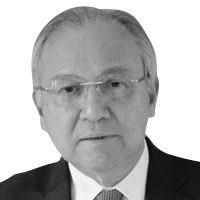ASEAN: Working toward resilience and sustainability

In the last regular meeting of the ASEAN Committee in Washington (ACW) with the Philippines as chair, I hosted a forum on environmental policy and public-private cooperation that would, hopefully, provide a deeper understanding of the priorities and initiatives toward sustainable and resilient development.
Co-moderating the discussion was Kevin Moss, Business Center Global Director of the World Resources Institute (WRI). WRI is a Washington-based global research group that works closely with leaders and business entities to promote environmental sustainability by turning “big ideas” into action in order to sustain our natural resources.
With us during the forum were ASEAN diplomats in Washington that include Ambassador Mai Sayavongs of Laos, Ambassador Aung Lynn of Myanmar, and Ambassador Ha Kim Ngoc of Vietnam, and representatives from the embassies of Brunei, Cambodia, Indonesia, Malaysia, Singapore and Thailand.
From the business sector, we had Johnson Controls VP for Global Sustainability and Industry Initiatives Clay Nesler, Mars Incorporated’s Sustainability Global Director Kevin Rabinovitch and Climate and Land Senior Manager Ashley Allen, Shell’s International Government Relations Director Erik Pelofsky, The Walt Disney Company Policy Strategy Director Emily Cichy, and WalMart Global Government Affairs Senior Director Sarah Thorn.
The said companies are members of the “We Are Still In” group – a bipartisan coalition composed of America’s mayors, governors, business executives, campus leaders, faith groups and other sectoral groups that have given their commitment to pursue ambitious climate goals and support initiatives to meet the Paris Agreement. Signatories of the “We Are Still In” network share a “commitment to elevating the attention and resources directed toward building climate resilience and enhancing the economic and environmental sustainability of the supply chains that power the US economy,” the group’s declaration went.
The timing of the forum was opportune as leaders of ASEAN issued a declaration during the 50th anniversary of the regional group in Manila last year that underscored the importance of the environment and its contribution to social development, economic growth, disaster resilience and ecosystem services at the national, regional and global levels.
ASEAN cooperation on the environment is guided by the ASEAN Socio-Cultural Community Blueprint 2025 that seeks an inclusive, sustainable, resilient and dynamic ASEAN community. At the recent 51st ASEAN Foreign Ministers Meeting in Singapore, a Joint Communique was issued, reaffirming the regional group’s commitment to promoting complementarities between the ASEAN Community Vision 2025 and the United Nations 2030 Agenda for Sustainable Development.
As the 2018 chair of ASEAN, Singapore launched several programs last month under the Climate Action Package to help ASEAN nations tackle climate change and enhance capacity in areas that include disaster risk reduction, flood management, climate science and long-term mitigation and adaptation strategies.
Singapore had also proposed the creation of the ASEAN Smart Cities Network – which makes a lot of sense since most of ASEAN’s growth has been driven by urban centers with 90 million more people expected to urbanize by 2030. “Middleweight” cities are also projected to drive 40 percent of the region’s growth. However, rapid urbanization brings challenges and serious implications on critical issues such as congestion, water and air quality, poverty, rising inequality, urban-rural divide as well as safety and security.
For its part, WRI envisions a world in which all cities are sustainable environments for people and economies to thrive. According to the UN, there will be an additional 2.5 billion people living in cities by 2050. The WRI Ross Center for Sustainable Cities aims to influence over 200 cities by 2019, helping them become more accessible, resilient, healthy and equitable – in the process unlocking these cities’ potential to become powerful engines for social, economic and environmental progress to improve people’s quality of life.
It is interesting to note that many cities in ASEAN lie along coastal areas and therefore are highly vulnerable to sea level rise and climate extremes. According to the 2018 Global Climate Risk Index of Germanwatch that analyzed up to what extent countries have been impacted by weather-related loss events (such as floods, storms, heat waves), the Philippines ranked fifth in the list of countries most affected by climate change during the period covering 1997 to 2016. This means that annual losses averaged $2.89 billion or about 0.6 percent of our GDP within the last two decades.
No doubt the climate change challenge is here to stay and is expected to intensify in the next few decades, but the Philippine government is committed to addressing such challenge – which also presents opportunities for alleviating poverty and attaining inclusive growth and shared prosperity. The Duterte administration is now scaling up climate financing by leveraging the domestic budget to effectively implement and deliver its climate change reform agenda, paving the way for a broad and strong financing strategy.
The discussion went very well, raising hopes that collective efforts between ASEAN, the WRI and our friends in the business community will enable us to chart where our cooperation should lead us in the coming years.
I ended the forum with a fairly emotional recounting to the participants about one of the most catastrophic disasters the Philippines experienced in November 2013 – because of super typhoon Yolanda (Haiyan) that left over 6,000 people dead. I had prepared myself for the worst when I visited Tacloban – dubbed as ground zero – but I was totally overwhelmed by the devastation with everything almost completely wiped out. To this day, I could not forget the faces of the people who suffered from the ravages of the typhoon – which should serve as a stark reminder on what could happen if we continue to ignore, and do nothing about, climate change.
* * *
Email: [email protected].
- Latest
- Trending





























